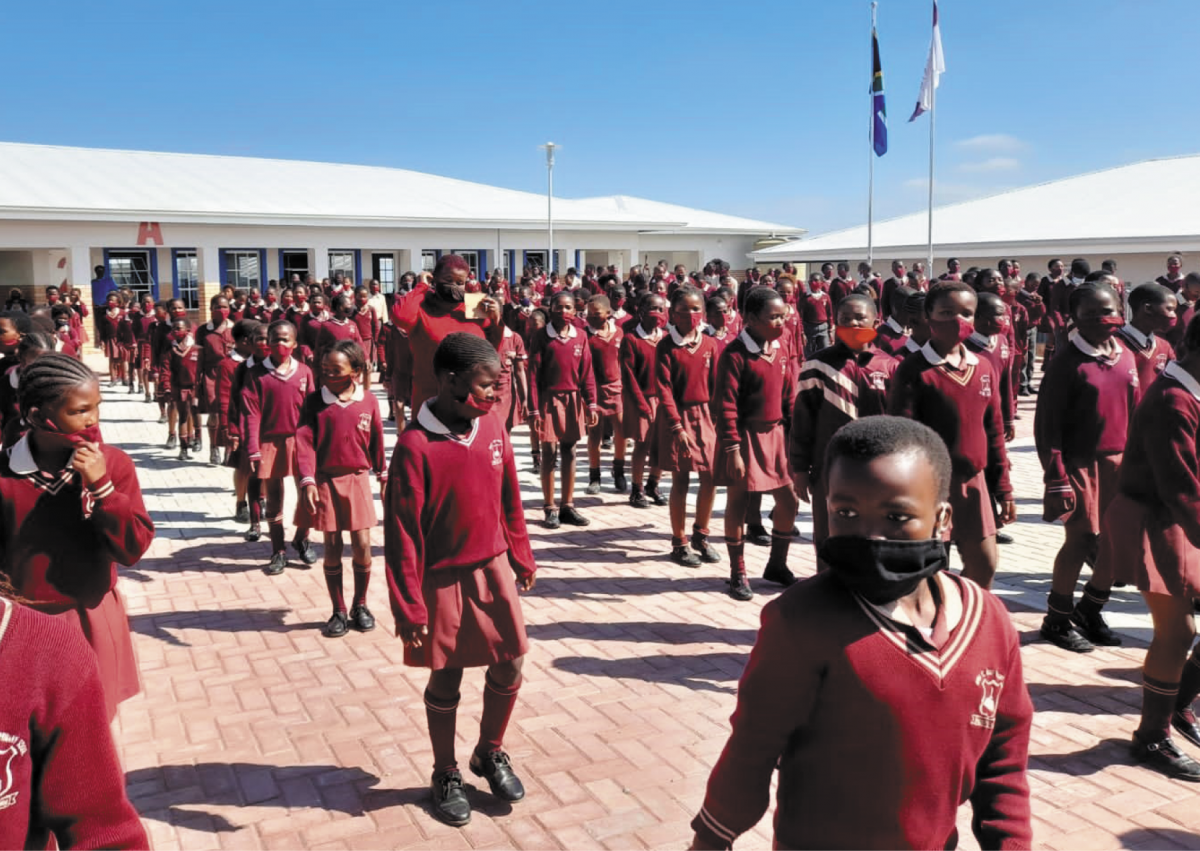ASIDI fast tracks school infrastructure
ASIDI fast tracks school infrastructure SiboneloNkululeko Ralo Primary School is a good example of how positive results can be achieved when communities and government work together.
The school, based in Mthatha in the Eastern Cape, first started operating in a garage at the home of community member Nkululeko Ralo, who it is named after.
Over the years, the school moved a number of times as it expanded.
However, learners and teachers never had the benefit of proper facilities until recently, when they walked through the doors of their new, state-of-the-art school.
The school was completed as part of the Accelerated Schools Infrastructure Delivery Initiative (ASIDI), which was launched by the Department of Basic Education in 2011.
The initiative aims to replace schools that compromise the safety of learners and staff, due to a lack of proper infrastructure, water, sanitation and electricity.
To date, ASIDI has built 266 schools, provided 886 schools with sanitation, 1 030 with water and 372 with electricity.
The learners of Nkululeko Ralo Primary School now have proper classrooms and access to a resource centre, science laboratory, multi-purpose and a nutrition centre.
A shared vision
Principal Koleka Gilman is passionate about improving education in Mthatha.
Her dream to start a school for her community began in 1988, and the following year, she began sharing her vision with the community.
“Our community was highly populated with a lot of children of school-going age who had nowhere to go for education. My vision was welcomed by community member Nkululeko Ralo, who offered his home garage to be used as a school,” says Gilman.
She adds that Ralo went on to organise a container from Telkom and it was used as an additional classroom.
Ralo also arranged with two members in his community to offer their garages as additional classrooms. Ralo sadly passed away in 2004.
In 1994, the school moved to the Eli Spilkin Hall, which was built by local businessman Eli Spilkin.
“In the same year, we received mobile toilets from the provincial Department of Education.
I then looked [for] and applied for a site where we would eventually build our school. We received five hectares of land in 1998,” says Gilman.
Three temporary classrooms were donated to the school by a non-profit organisation called Kats and Spaks, and the community built five mud classrooms.
Throughout the years, Gilman continued to advocate for the school to be improved and eventually, five classrooms were received from the Eastern Cape Premier’s Office.
In 2014, things took a positive turn when the Department of Basic Education, through ASIDI, issued a tender to build Nkululeko Ralo Primary School.
“Construction started in 2018 and the school was completed in 2021, thanks to ASIDI,” says Gilman.
Inspiring teaching and learning
Basic Education Deputy Minister Reginah Mhaule says the department wants to ensure that the physical infrastructure of every school inspires learners to attend school and learn, and educators to teach.
“The building of this school is government’s way of restoring dignity to rural and under-privileged school-going children and their teachers,” she adds.
A member of the school governing body, Nomuntu Dlengane, says the new school will motivate teachers and learners to reach their full potential.
“Our learners’ attitudes and self-confidence have already improved due to the new infrastructure.
This will also help us maintain social distancing in our classrooms so that we can eliminate the spread of the Coronavirus Disease,” says Dlengane.
The school has 489 learners, 14 teachers, and two administration clerks. It caters for grades R to 7 and is a non-fee paying school.
ASIDI in numbers
- There were 39 ASIDI schools completed between 202 and 2021.
- R1.395 billion was spent building schools during the 2020/2021 financial year.
- In total, an amount of R8.195 billion has been spent on the construction of 266 schools.